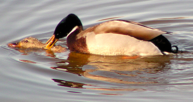RESEARCH
The team is focused in three main lines of research:
Analysis of Nucleotide Variability on Natural and Domesticated Populations:
Our focus is mainly on the species Sus scrofa (the pig) and close related species. We are interested in explaining the evolutionary processes involved in the history of this species and the effect of natural and artificial selection in wild and domestic breeds.
We are also interested in analyzing the variability in autopolyploid species using statistics adapted for pooled lineages.
Study and development of Neutrality tests and methods for statistical inference of evolutionary models:
A useful way to obtain a more interpretable information from raw sequencing data is the use of statistics and neutrality tests. They summarize the information observed and make possible to understand the evolutionary patterns more easily. We study and develop neutrality test to be used in evolutionary parameter inference.
Development of tools for the analysis of nucleotide variability:
We have been working in developing tools for the analysis of nucleotide variability in multilocus data: analysis on multilocus data can be much precise in comparison to single locus because they reduce the variance of the parameters inferred in the analysis. We develop tools for multilocus population genetic analysis.
Now we are focusing on population genomics: massive parallel sequencing is revolutionizing the study of population genetics in many ways. We are developing bioinformatic tools for the analysis of variability at genomics level.


